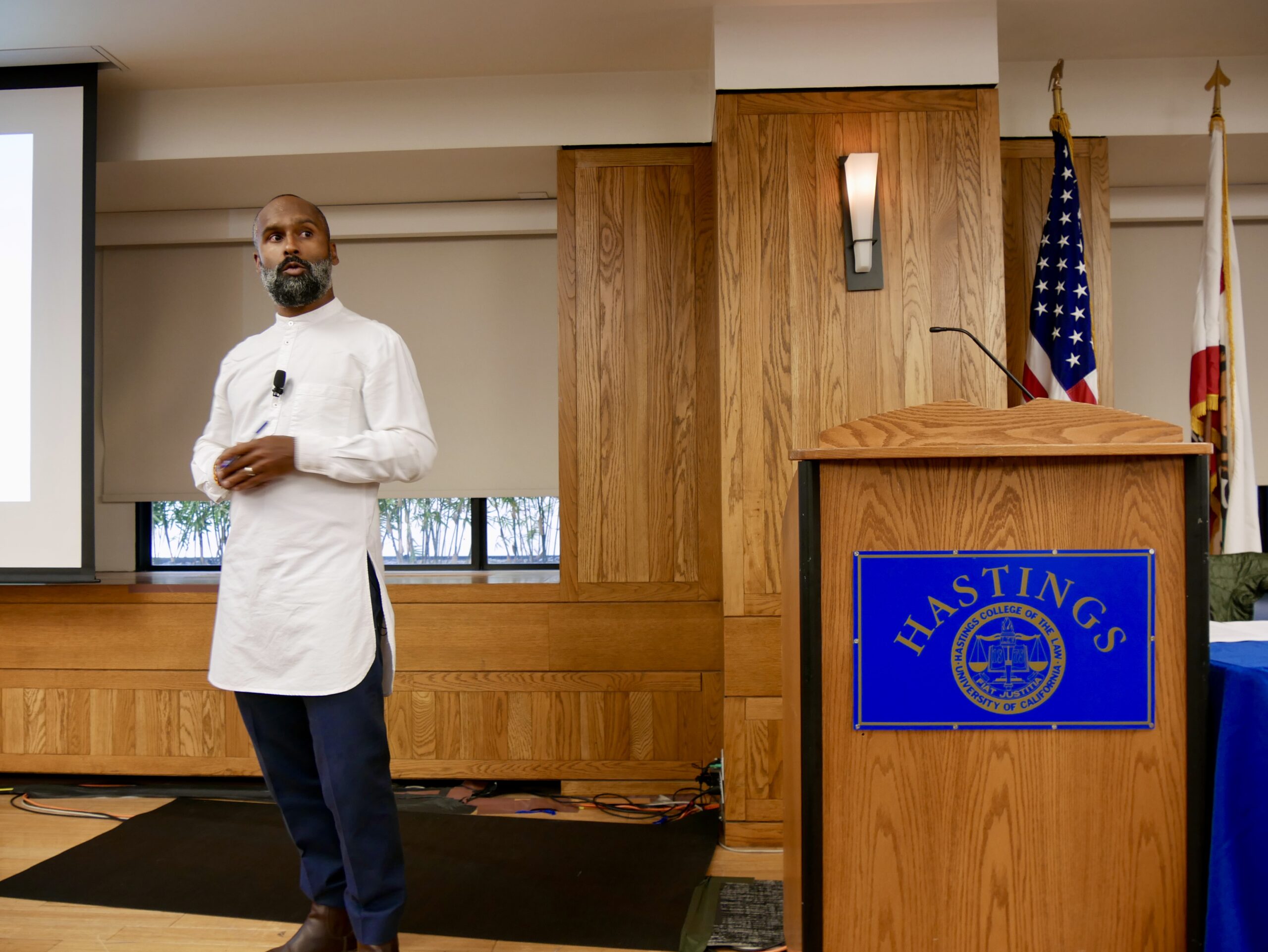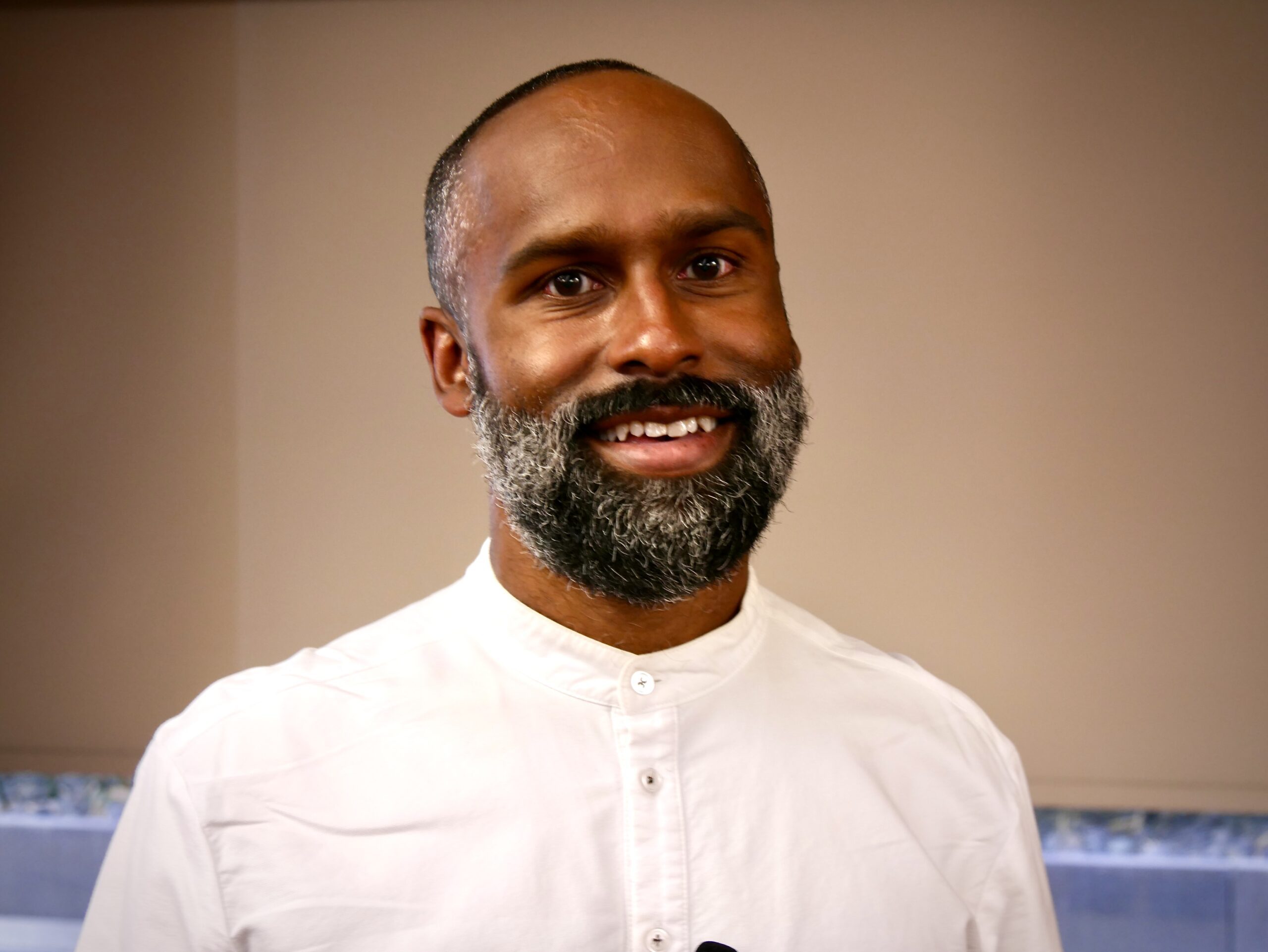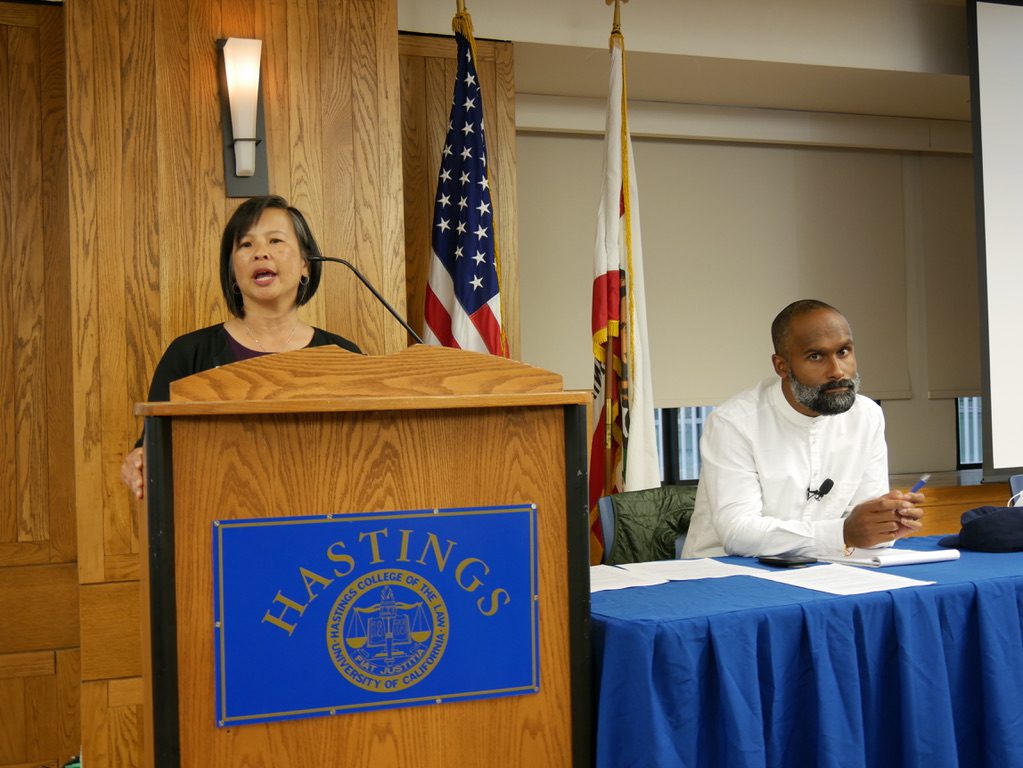ACLU Attorney Emerson Sykes Talks Free Speech and First Amendment at UC Law SF Campus

ACLU attorney and First Amendment expert Emerson Sykes spoke to the UC Law SF community about free speech, academic freedom, and racial justice.
While UC Law SF is one of the many higher education institutions across the United States grappling with free speech and racial justice issues, it is embracing the challenge and finding a way forward.
Thrust in the limelight in March, when angry students shouted down conservative speaker Ilya Shapiro, the College reacted to the incident quickly.
- Senior administrators sent a message to the community reinforcing the College’s commitment to the First Amendment and fostering an inclusive environment.
- They also met with student organizations involved to discuss what happened and how the College could better support them when such controversial events happen on campus in the future.
- Over the summer and into the fall semester, the College worked on a campus event policy, circulated drafts, and received feedback from faculty, staff, and students, and adopted the policy in October.

Emerson Sykes is an expert on free speech and its role in racial justice activism.
The law school also hosted Emerson Sykes, a senior staff attorney with the ACLU Speech, Privacy, and Technology Project, who works at the intersection of the First Amendment and racial justice. He led a workshop for students called “The First Amendment for Student Activists.” He also spoke with faculty and the entire law school community.
Sykes has facilitated the same workshops for student leaders at UC Berkeley, UC San Diego and Stanford to help them address common campus free speech issues, “The idea is to give students the tools to navigate these difficult questions,” he said. “We start with a totally biased premise, we’re pro free speech. We make the case why we make robust protections of free speech and help them understand how free speech is ultimately to their benefit.”

UC Law SF Dean of Students Grace Hum said that respecting free speech and inclusion values can enrich the campus environment.
UC Law SF Dean of Students Grace Hum introduced Sykes’ talk and said, “Instead of pitting free speech values against inclusion values as though this were a zero-sum game, we have to find a way to think about how these values work together to enrich our campus environment. This work requires us to engage with each other on these hard issues, to challenge each other, to give each other opportunities to learn from each other, to have difficult conversations in which we might disagree – all in an effort to have a productive dialogue to get to a place where we all want to go – an inclusive environment where we learn and grow together as individuals and as a community.”
In his remarks, Sykes reviewed the language of the First Amendment and the protections it affords citizens. He pointed out that the government cannot tell a person what to think or believe; cannot abridge a person’s freedom to share an idea; cannot obstruct a person’s ability to publish those ideas; cannot restrict a person’s right to peaceably assemble; and cannot prevent a person from petitioning the government for redress.
“With this reading, we can understand the First Amendment as protecting the journey from an idea to a social movement,” Sykes said. “With that idea in mind, I understand the First Amendment as the activists’ best friend.”
He also reminded the law school audience that the First Amendment does not control the viewpoint of a speaker. “If you are shutting down speech because they’re pro or con, it’s unconstitutional. What government can do is regulate the time, place, and manner of speech. It can’t regulate the content and never the viewpoint of private speakers.”
As he wound up his talk, he left his audience with some food for thought: “We have to remember that people can and do change their minds. In a polarized society as we have today, it’s almost impossible to imagine switching sides. But we’ve all changed our minds about things. People do and can often change their minds.”